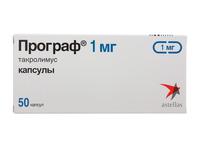Prograf is an immunosuppressive drug, originally approved to help prevent organ rejection in individuals undergoing liver transplants. The drug was subsequently approved for use in cases of kidney and heart transplants. Prograf has also been routinely used as part of antirejection therapy regimens in cases of lung transplants. Now, following the analysis of real-world evidence from a noninterventional, observational study, Prograf has been approved for use in combination with other immunosuppressant drugs to help prevent rejection in adult and pediatric patients receiving lung transplants. This is a significant approval, making Prograf the first and only immunosuppressant drug approved to prevent organ rejection in the context of lung transplants in these patient populations. The evidence to support the approval of the new use of Prograf comprised real-world evidence from an observational study that used real-world data from the US Department of Health and Human Services-supported US Scientific Registry of Transplant Recipients. Data from randomized-controlled clinical trials investigating Prograf use in cases of other solid organ transplants provided further supporting evidence for the approval. Source: https://www.fda.gov/ |
||





























